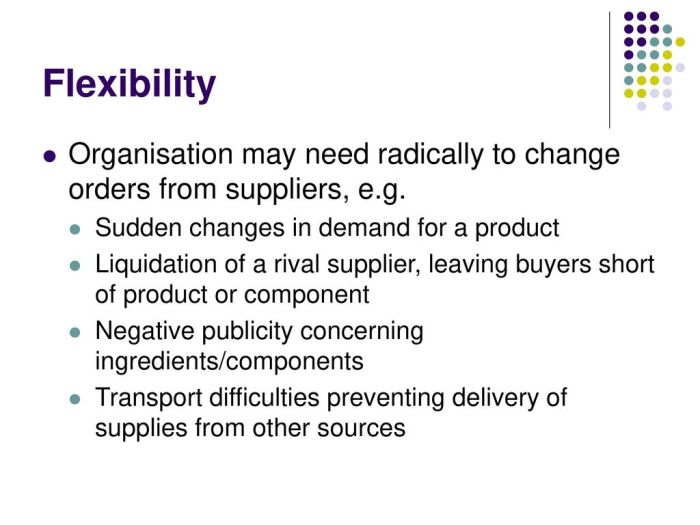Pros of Renting a House A Comprehensive Guide
Financial Advantages of Renting
Pros of renting a house – Renting a house offers significant financial benefits, particularly when compared to the complexities and substantial upfront costs associated with homeownership. The predictable nature of rental payments and the absence of numerous ongoing expenses contribute to a more stable and manageable financial picture for renters.
Predictable Monthly Payments

Source: com.vn
Unlike homeownership, where costs can fluctuate significantly due to unexpected repairs, property tax increases, and insurance adjustments, renting provides the security of consistent monthly payments. This predictability simplifies budgeting and financial planning, allowing renters to allocate funds more effectively towards other financial goals.
Absence of Property Taxes, Insurance, and Maintenance
Renters are typically relieved of the substantial financial burdens associated with property taxes, homeowner’s insurance, and property maintenance. These costs, which can represent a significant portion of a homeowner’s monthly expenses, are the responsibility of the landlord in a rental agreement. This frees up a considerable amount of disposable income for renters.
Lower Upfront Costs
The initial investment required for renting is significantly lower than that of purchasing a home. Renters typically only need to pay a security deposit and the first month’s rent, whereas homebuyers face substantial closing costs, down payments, and mortgage origination fees. This lower barrier to entry makes renting a more accessible option for many individuals and families.
Capital Liberation for Other Investments
The money saved by not having to shoulder the financial responsibilities of homeownership can be channeled into other avenues such as investments, savings, or debt reduction. This allows renters to build wealth and achieve financial goals more rapidly than if they were burdened by the ongoing costs of homeownership. For example, the money saved on property taxes could be invested in a retirement account or used to pay down high-interest debt.
Comparison of Monthly Costs
| City | Rent (Average) | Mortgage (Average) | Total Ownership Costs (Average) |
|---|---|---|---|
| New York City | $3,500 | $5,000 | $7,000 |
| Los Angeles | $2,800 | $4,000 | $5,500 |
| Chicago | $1,800 | $2,500 | $3,500 |
Note: These figures are average estimates and can vary widely based on location, property type, and individual circumstances.
Flexibility and Lifestyle Benefits
Renting offers a level of flexibility and convenience that is often unattainable with homeownership. The ease of relocation, the absence of maintenance responsibilities, and the ability to adapt living arrangements to changing circumstances are just some of the advantages that make renting an attractive option for many.
Ease of Relocation
Relocating is significantly easier for renters than for homeowners. The process of selling a house can be lengthy, complex, and stressful, involving marketing, showings, negotiations, and closing procedures. Renters, on the other hand, simply need to provide notice at the end of their lease term and move, making relocation a much more streamlined process.
Landlord-Handled Repairs and Maintenance
Renters benefit from the convenience of having a landlord responsible for most repairs and maintenance. This eliminates the time, effort, and expense associated with handling these tasks themselves. From plumbing issues to appliance malfunctions, the landlord typically assumes the responsibility for maintaining the property’s functionality.
Lifestyle Flexibility
Renting provides the freedom to explore different neighborhoods, experiment with different living styles (apartments, townhouses, etc.), and adjust living space based on changing needs. This flexibility is particularly beneficial for individuals whose life circumstances may change frequently, such as young professionals or families with growing children.
Shorter Lease Terms
The availability of shorter lease terms offers added flexibility for individuals with unpredictable circumstances. Whether it’s a job relocation or a change in personal circumstances, shorter leases allow renters to adapt their housing situation more readily than those locked into long-term mortgage commitments.
Time Commitment Comparison

Source: slideplayer.com
- Renters: Minimal time commitment for maintenance; most tasks are handled by the landlord.
- Homeowners: Significant time commitment for maintenance, repairs, yard work, and property management.
Amenities and Community Features
Rental properties often come with a range of amenities and access to community features that can enhance the quality of life for residents. These features can range from basic conveniences to more luxurious offerings, creating a more comfortable and enjoyable living experience.
Desirable Amenities
Many rental properties include amenities such as swimming pools, fitness centers, parking garages, laundry facilities, and landscaped common areas. These amenities can significantly improve the convenience and enjoyment of living in a rental property, often exceeding what’s available in individually owned homes.
Access to Community Features
Rental communities often offer greater access to community features and services than individually owned homes. This can include community centers, parks, playgrounds, and organized social events, fostering a sense of community and providing opportunities for social interaction.
Vibrant Social Environment
Some rental communities, particularly apartment complexes, often cultivate a more vibrant and active social environment than individually owned homes. The proximity of neighbors and shared amenities can create opportunities for social interaction and a sense of belonging.
Established Infrastructure and Convenient Access
Rental properties are often located in areas with established infrastructure, providing convenient access to public transportation, shopping centers, restaurants, and other essential amenities. This can significantly reduce commuting times and enhance overall convenience.
Community Features by Rental Type
| Rental Type | Feature | Availability | Cost (typically included in rent) |
|---|---|---|---|
| Apartment | On-site laundry | High | Yes |
| Townhouse | Private patio/yard | High | Yes |
| Single-Family Rental | Garage | Medium | Sometimes |
Reduced Responsibilities and Time Commitment
One of the most significant advantages of renting is the reduction in responsibilities and time commitment associated with property maintenance and management. This frees up valuable time and energy that can be devoted to other pursuits.
Time and Energy Savings
Renting frees up considerable time and energy that would otherwise be spent on home maintenance, repairs, and property management tasks. This allows renters to focus on their careers, families, hobbies, and other personal interests.
Landlord’s Role in Property Management, Pros of renting a house
The landlord is responsible for handling most aspects of property management, including repairs, maintenance, and addressing tenant concerns. This eliminates the need for renters to manage these tasks themselves, saving them considerable time and effort.
Simplified Daily Life and Reduced Stress
The reduced responsibilities associated with renting contribute to a simpler, less stressful daily life. Renters are not burdened by the concerns of property upkeep, repairs, or administrative tasks related to homeownership.
Time Saved on Administrative Tasks
Renting eliminates the need to deal with property taxes, homeowner’s insurance, and other administrative tasks associated with homeownership. This saves significant time and effort, allowing renters to focus on other priorities.
Renting significantly reduces the time and energy commitment associated with property maintenance, repairs, and administrative tasks, leading to a more relaxed and less stressful lifestyle.
Renting offers flexibility and avoids the long-term commitment of homeownership, allowing you to easily relocate as needed. If you’re considering a move to a desirable area, check out the available options for a palmdale house for rent to see what suits your needs. Furthermore, renting often includes maintenance and repairs handled by the landlord, freeing up your time and resources to focus on other priorities.
Exploring Different Living Situations: Pros Of Renting A House
Renting provides a unique opportunity to explore various neighborhoods and living styles before committing to a long-term purchase. This flexibility allows individuals to tailor their living situation to their evolving needs and preferences.
Exploring Neighborhoods and Living Styles
Renting allows individuals to experience different neighborhoods and assess their suitability before making a significant investment in a home purchase. This exploratory phase can help individuals identify areas that best meet their lifestyle and preferences.
Experimenting with Different Living Spaces
Renting provides the flexibility to try out different types of living spaces, such as apartments, townhouses, or single-family homes, without the long-term commitment of homeownership. This experimentation can help individuals determine the type of living space that best suits their needs and preferences.
Adapting to Changing Life Circumstances
Renting makes it easier to adapt to changing life circumstances. Whether it’s a change in job, family size, or personal preferences, renting allows individuals to adjust their living situation more easily than if they were bound by a mortgage.
Adjusting Living Space Size
Renting allows for easier adjustments to living space size as needed. Individuals can easily downsize or upsize their living space to accommodate changing needs, without the complexities and costs associated with selling and buying a home.
Variety of Housing Options
The visual representation of housing options available through renting would show a diverse range of options, from compact studio apartments in bustling city centers to spacious single-family homes in suburban neighborhoods, with townhouses and duplexes falling somewhere in between. Each option would be depicted with its own unique characteristics, highlighting the variety and flexibility that renting offers.
Question & Answer Hub
What are the typical lease terms for rental properties?
Lease terms vary, but common lengths include 6 months, 1 year, and 2 years. Shorter-term leases are often available but may come with higher monthly rent.
What happens if there are repairs needed in a rental property?
Landlords are typically responsible for repairs, but tenants should report issues promptly and follow the procedures Artikeld in their lease agreement. Emergency repairs usually require immediate attention from the landlord.
Can I decorate my rental property?
Generally, you can decorate within reason, but significant alterations typically require the landlord’s permission. It’s crucial to restore the property to its original condition before moving out.
What happens if I need to break my lease early?
Breaking a lease early usually involves penalties, often equivalent to several months’ rent. It’s essential to review your lease agreement for specific details and to communicate your situation with the landlord as soon as possible.




















